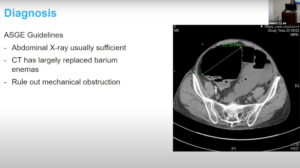NEW YORK (Reuters Health) – There is some evidence to support the use of immunosuppressive therapy to avoid relapse in inflammatory bowel disease (IBD), but more research is needed, investigators report in a March 15th on-line paper in the American Journal of Gastroenterology.
“Immunosuppressives,” Dr. Khurram J. Khan told Reuters Health by email, “remain a favorable drug therapy among patients with IBD and their treating physicians. Evidence from the studies suggests the effect is not well understood as many of the clinical trials are small, the summary effect is modest, and in some cases not statistically significant. We still need to evaluate efficacy in more conclusive, large, randomized controlled trials.”
Dr. Khan of the Health Sciences Center, McMaster University, Hamilton, Ontario and colleagues note that if management of Crohn’s disease (CD) and ulcerative colitis (UC) with 5-aminosalicylic acid therapy and steroids is no longer optimal, a trial of immunosuppressive therapy is appropriate.
To gauge how effective this approach might be, the researchers reviewed outcome from parallel group randomized controlled trials. However, they say that it reflects poorly on GI research that “we only have 897 CD patients and 268 UC patients” enrolled in such trials of immunosuppressive therapy.
Information on methotrexate and cyclosporine in IBD was particularly limited although there were some data to support the use of intramuscular methotrexate in CD but not UC.
Five trials of azathioprine or 6-mercaptopurine in 380 patients with active CD did not show any effect on remission. In trials involving 198 with quiescent CD, azathioprine had no significant effect on relapse. In further withdrawal trials, continuation of the agent did not prevent relapse.
Two studies of 130 patients with active UC suggested a trend towards benefit with use of azathioprine. In 3 trials involving 127 patients with quiescent UC, significant prevention of relapse was shown (relative risk, 0.60).
The review, say the investigators, “did not find any evidence of increased adverse events in those taking immunosuppressive therapy compared with placebo.” However, this simply reflects the small numbers involved.
“Immunosuppressive therapy,” they conclude, “is not without risk and therefore it is imperative that the benefits of these agents are rigorously defined so that the risk-benefit ratio of these drugs can be established.”
Am J Gastroenterol




